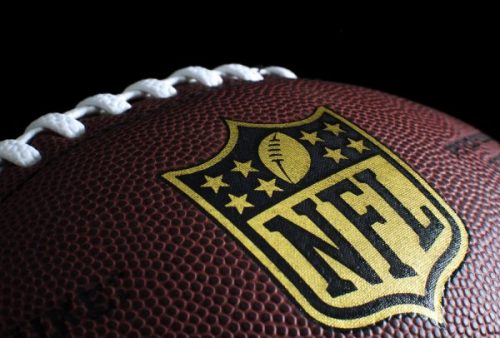NFL and Fanatics Face Antitrust Lawsuit Over Alleged Online Retail Market Conspiracy

The National Football League (NFL) and sports merchandise giant Fanatics find themselves entangled in yet another legal battle as they face a prospective antitrust class action lawsuit filed in federal court in Manhattan on Friday.
The lawsuit alleges that the two entities conspired to stifle competition in the online retail market for jerseys, t-shirts, and other licensed goods, ultimately leading to inflated prices for consumers, reported Reuters.
The plaintiff, an Illinois resident, contends that the NFL, along with its 32 professional football teams, collaborated with Fanatics to provide the Florida-based company with an unfair advantage over other retailers. The lawsuit claims that rather than engaging in healthy competition for sales, the defendants effectively granted Fanatics exclusive access to their retail landscape, allowing the company to dominate the market.
“Instead of competing for sales, defendants have simply handed Fanatics the proverbial keys to their stores,” the lawsuit states. Furthermore, it alleges that Fanatics reciprocates by sharing its monopoly profits with the NFL teams involved.
As of now, representatives for the NFL have not provided a comment in response to the allegations.
Read more: Raiders’ Move To Vegas Case Sent To SCOTUS
In contrast, Fanatics swiftly responded to the lawsuit in a statement, dismissing it as a mere repetition of a previously dismissed case. The company asserted that it would vigorously defend itself against what it characterized as an attempt at “a second bite at the apple.”
This legal dispute is the latest in a series initiated by the plaintiffs’ law firm, Burns Charest, aimed at holding Fanatics, the NFL, and its affiliated clubs accountable for alleged anticompetitive business practices. However, it’s worth noting that a Manhattan federal judge ruled in favor of the NFL, its teams, and Fanatics in a similar lawsuit filed by the same law firm in the past year. In that case, the judge determined that the dispute should be settled through private arbitration rather than in court.
The prevalence of mandatory arbitration provisions in such contracts can often impede consumer claims in commercial litigation, limiting potential damages to individual cases rather than allowing for class-action lawsuits. U.S. District Judge Andrew Carter, in the earlier case, emphasized that the plaintiffs had agreed to arbitrate, covering all defendants, and indicated that the arbitrator should decide whether certain claims fall within the agreement.
Source: Reuters
Featured News
Subscribers Defend $4.7 Billion Antitrust Verdict Against NFL in Court Filings
Jul 19, 2024 by
CPI
Von der Leyen Calls for Competition Policy to Boost EU Companies’ Growth
Jul 19, 2024 by
CPI
Vermont AG Sues Pharmacy Benefit Managers Over Drug Prices
Jul 18, 2024 by
CPI
Australians Face Increased Stamp Prices Following ACCC Approval
Jul 18, 2024 by
CPI
Live Nation Seeks Dismissal of DOJ Antitrust Allegations
Jul 18, 2024 by
CPI
Antitrust Mix by CPI
Antitrust Chronicle® – Private Equity Roll-Up Schemes
Jun 28, 2024 by
CPI
The FTC’s Focus on Private Equity is Warranted
Jun 28, 2024 by
CPI
Unraveling the Roll-Up: Private Equity’s Misunderstood Investment Strategy
Jun 28, 2024 by
CPI
Antitrust Focus on Private Equity Funds and Serial Acquisitions
Jun 28, 2024 by
CPI
Private Equity Roll-Ups Amidst Heightened Antitrust Enforcement
Jun 28, 2024 by
CPI